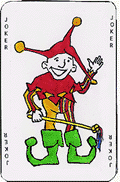Some Tips for Searching Our Databases
A database is simply a collection of articles, documents, books, etc. which are "findable" by author, subject, title, keyword, format, and so on. You are able to search them through indexes, which, like the index at the back of a book, allows you to find the information you want.
Here are a few methods to help you when you are trying to find information in our databases:
USE THE RIGHT NUMBER OF KEYWORDS
A keyword is a significant word used in a database to indicate the content or creator of an item of information. Therefore, a keyword could be part of an author's name, a subject heading, or a word in the title or text of an item. Here is a great video from Kimbel Library of Coastal Carolina University on techniques for using the right number of keywords to find information in a Library database.
If you are in the Library, be sure to wear headphones to hear the sound in the video below.
Also, to see the full screen clearly, click on the YouTube logo on the bottom right, run your cursor along the bottom edge of the video screen, and click on the ![]() symbol. When you are finished viewing, close the YouTube tab to get back to this page
symbol. When you are finished viewing, close the YouTube tab to get back to this page
USE "AND" TO NARROW DOWN YOUR RESULTS:
AIDS AND Women

The area in yellow describes the amount of information that you would find in combining the subjects of "women" AND "AIDS." You will find results that have both terms in common.
USE "OR" TO BROADEN (get more) RESULTS
If you find that you are retrieving fewer results/less information than you would like, try using "or" in combining concepts.
AIDS OR Women

All of the area in yellow represents the information you would get by combining "women" OR "AIDS."Or" will find each term separately or together.
USE TRUNCATION (shortening of word stems) TO BROADEN (get more) RESULTS)
Truncation is like a wildcard. Added to the stem of a word, it will find that stem plus anything that comes after it.

The symbol used to truncate a word depends upon the database or search engine you are using. For example, the truncation sign in many databases is *. As a result, a search term "sex*" will return records on sex, sexual, sexuality.
USE QUOTES TO SEARCH FOR A PHRASE

Whenever you are searching for a topic and the topic is composed of two or more words strung together (like "bird flu," "health care reform," or "global warming,"), put the words within quotes, so that you will retrieve items that are related to the whole phrase, not just to each word individually.

